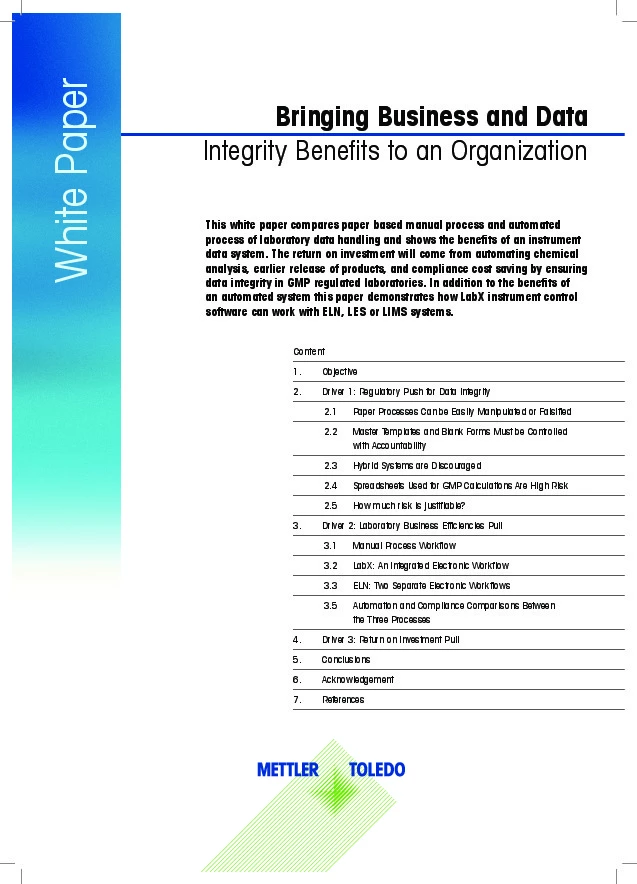5 dangerous data integrity risks your lab may be taking
Add bookmark
Regulatory authorities like the FDA and MHRA expect pharma labs to keep current with technology and improve how they safeguard drug quality.
Risks stand tall
There are many data integrity risks for labs to combat. These aren’t limited to: paper processes being easily manipulated or falsified, master templates and blank forms requiring diligent control, hybrid systems receiving increased regulatory scrutiny and high vulnerabilities within spreadsheets used for Good Manufacturing Practice (GMP) calculations.
But, the consequences stand taller
GMP compliance can absorb a lot of time and resources, but slip-ups are costly. Some labs know this all too well after receiving an investigator warning letter or finding.
Download the whitepaper to read key FDA investigation findings and warning letters

Technology to the rescue?
The transition from manual to automated process can provide labs with improved productivity and airtight data integrity practices to avoid compliance mistakes.
Which is the best strategy?
In this piece, we run direct comparisons of effort, risk, benefits and limitations of manual processes and various lab automation processes to calculate which avenue is the best choice.
This whitepaper examines the regulatory landscape to see inside and beyond the laboratory to address the points above and assess the rewards business benefits attached to laboratory automation.
Why download this whitepaper?
- Crunch the numbers: Read the calculations showing the cashflow benefits from a more automated workflow through the earlier release of product
- Eliminate transcription errors from automating chemical analyses in GMP regulated labs
- Avoid wasting time: Ensure swift data integrity and regulatory compliance for chemical analysis
Powered by:




















